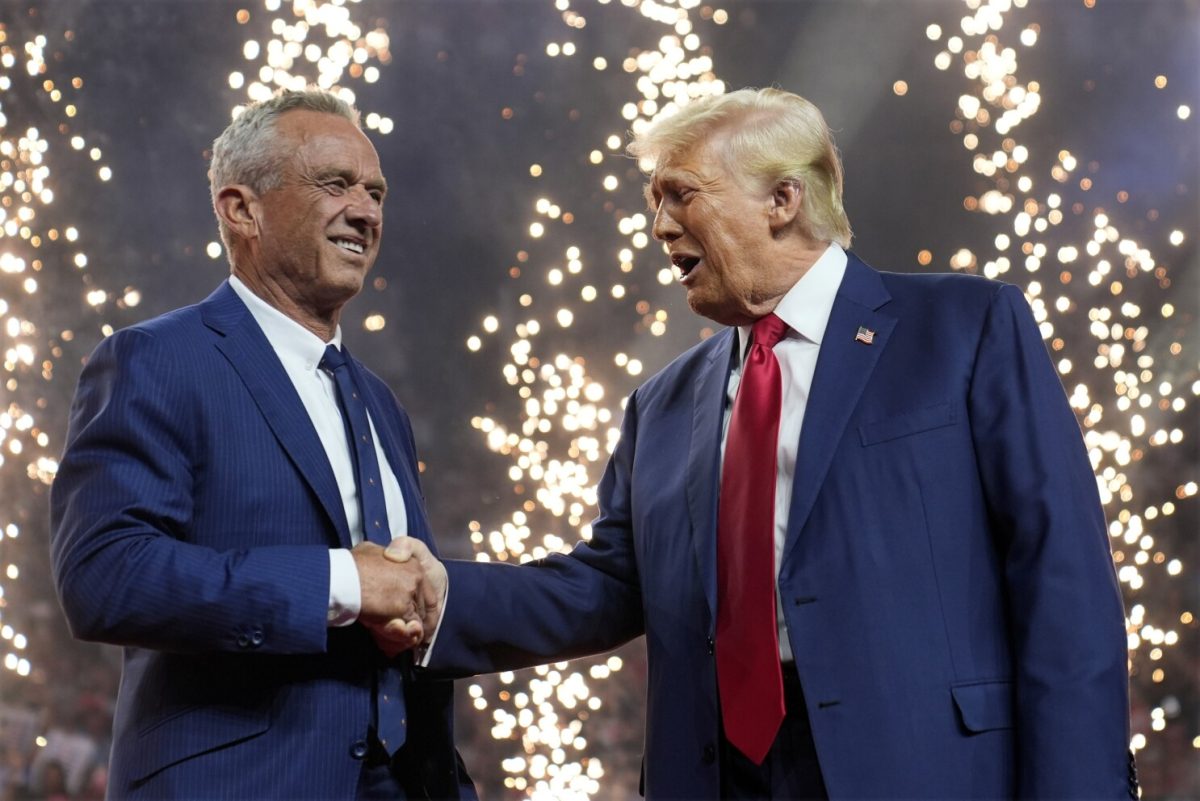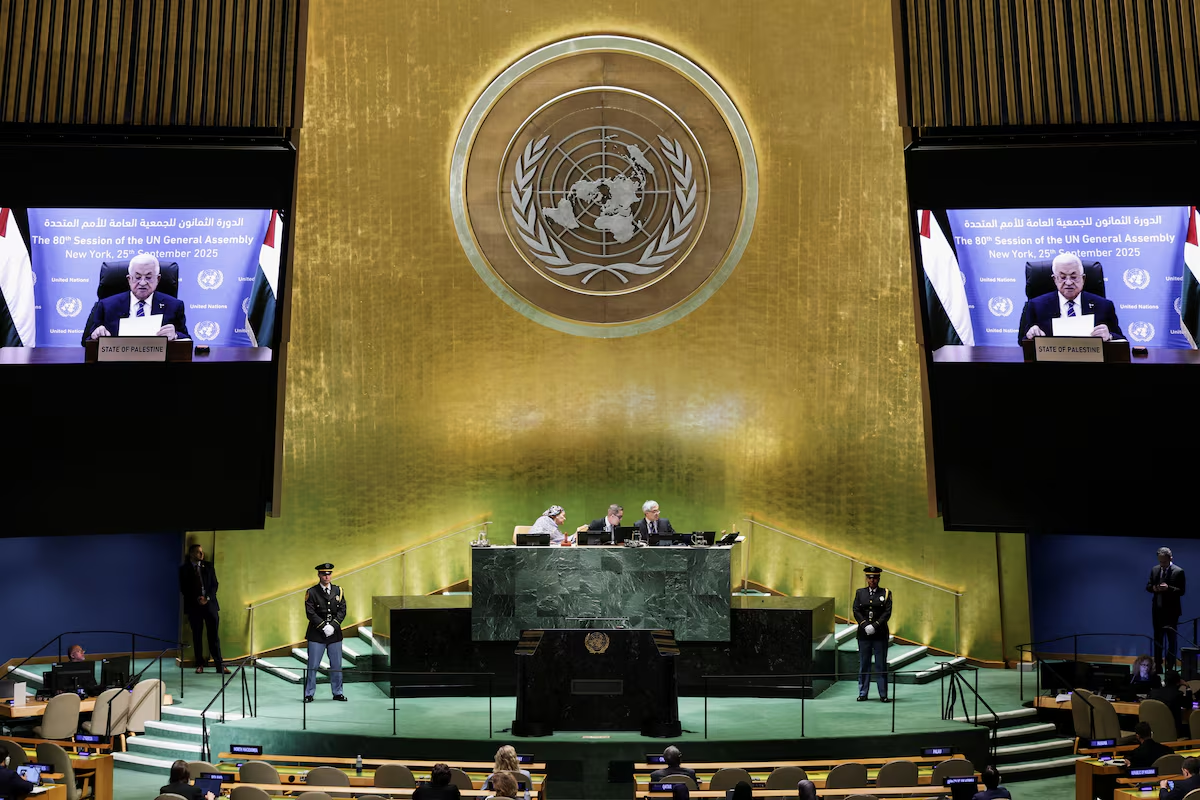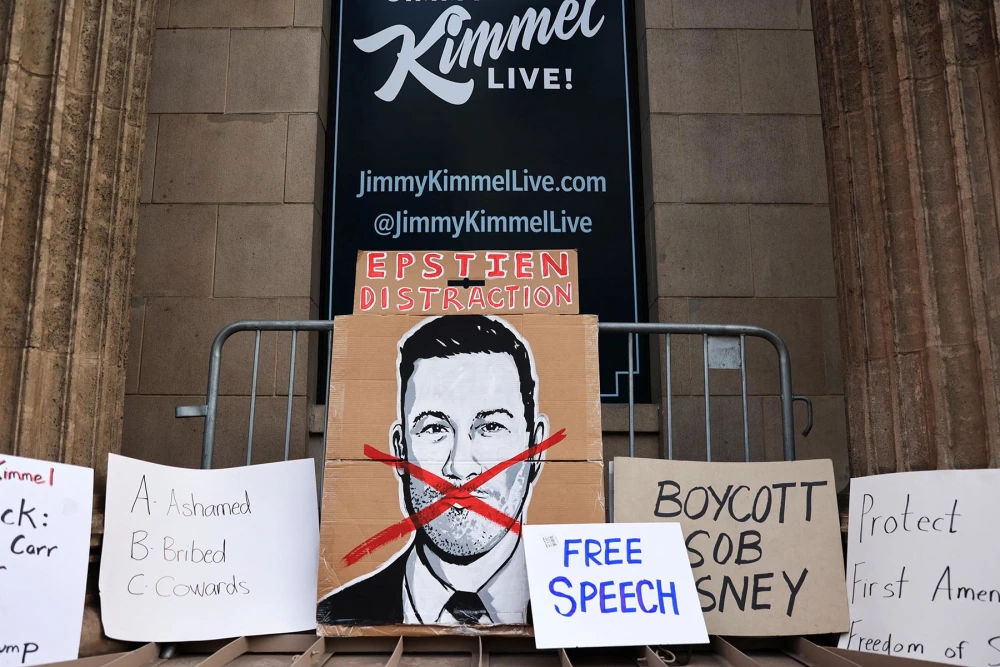Two ex-Democrats, Robert Kennedy Jr. and Tulsi Gabbard have decided to endorse Donald Trump for president of the United States. Their reasonings are a blend of personal reasons and discovered overlaps in belief between themselves and Trump, and both endorsements could mean big changes to the possibility of a second Trump term.
Kennedy, who was previously running as an independent presidential candidate, recently dropped out of the race. His reasoning was that the Democratic party had fallen from its values that he once aligned with, and he felt that his presence on the ballot would only hurt Trump and help put Kamala Harris in office.
“It (the Democratic party) has become the party of war, censorship, corruption, Big Pharma, Big Tech, Big Ag and big money,” Kennedy said.
Kennedy stated that Trump had offered to create a unity party with him. Kennedy found this plausible considering that they overlap on issues such as ending foreign wars, ending disease epidemics, securing the border, guarding free speech, removing corporations from regulatory agencies and stopping U.S. intelligence agencies from influencing the American public.
Kennedy felt that he could make real changes, primarily about chronic disease in America if he was involved with a Trump presidency. He believes that joining Trump is preferable to staying in the race merely to lose and help Harris with whom he vehemently disagrees.
“If President Trump is elected and honors his word the vast burden of chronic disease that now demoralizes and bankrupts this country will disappear,” Kennedy said.
There is criticism of Kennedy’s decision, seeing it as purely self-serving. This partially comes from the fact that Kennedy tried to negotiate a similar deal with the Harris campaign, implying he may not feel so negatively about Harris and the Democratic party.
Gabbard has also endorsed Trump, citing overlapping beliefs on issues that have pushed her away from the Democratic party and towards the Republican camp. Primarily, Gabbard has praised Trump on matters of war and peace.
Gabbard, who served in the United States Army, had a large focus on anti-war policies during her time as a congresswoman and her run for president in 2020 in the Democratic party. Gabbard has now expressed how she feels that her anti-war stances are best reflected by Trump rather than Harris.
“We saw this in his (Trump) first presidency, when he not only didn’t start any new wars, he took action to de-escalate and prevent wars,” Gabbard said.
Both Gabbard and Kennedy have reportedly been invited to join Trump’s transition team, which means that they would be involved with picking the federal executive employees who would replace the current Biden team if Trump wins the election. Both Gabbard and Kennedy are anti-establishment in who they choose as allies, which could incorporate far less mainstream Republicans as Trump’s first presidency.
Although this alliance between two former Democratic Presidential nominees and Trump may make sense in some areas, it could lead to possible internal conflict, as there are many rival opinions beyond the commonalities between them. This is evident in the fact both Kennedy and Gabbard supported Bernie Sanders for president in 2016.
“I was a ferocious critic of many of the policies during his (Trump) first administration and there are still issues and approaches upon which we continue to have very serious differences,” Kennedy said.
Despite the past conflict, the Trump campaign seems confident that they will retain solidarity despite this ever-growing umbrella of ideologies that are being incorporated.
“There are things that Robert Kennedy said that I disagree with and there are things that I said that he’ll disagree with, but I think that what his endorsement represents is that Donald J. Trump’s Republican party is a big tent party,” Senator JD Vance, Trump’s vice presidential nominee, said.
It is clear that the Trump campaign has been making an effort to appeal to a broader group of ideologies, this new coalition of ex-Democrats on his team is only one part of this strategy.
It is extremely unusual for multiple Democratic presidential nominees to support the Republican candidate for president. This is a reflection of the incredibly unique state of the 2024 presidential election and the many rapid changes in modern American politics.









